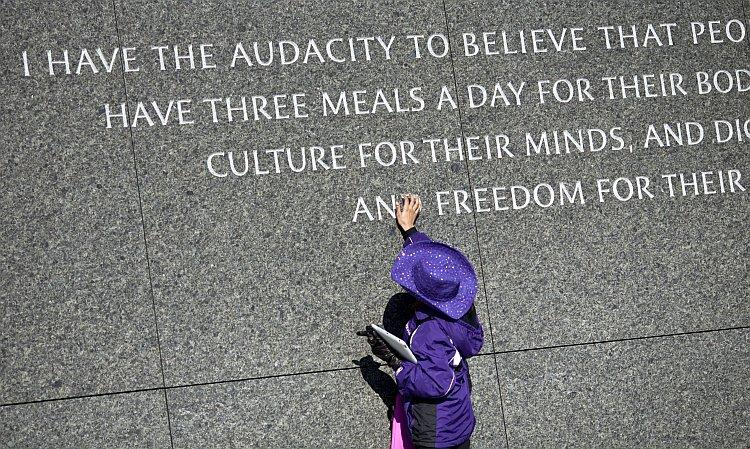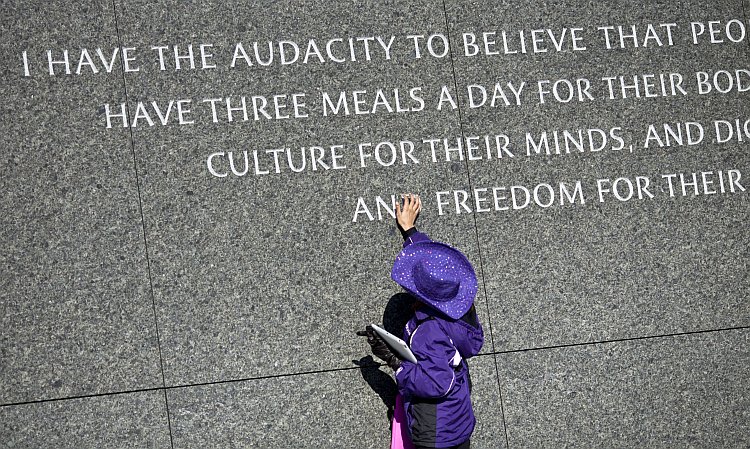With Black History Month—and its recognition of culture and achievements—just around the corner, the nation can laud the impact of America’s African-Americans on U.S. history, culminating recently with the election of President Obama in 2008. But some black Americans are reflecting pensively on the progress of their movement. Chuck Williams feels the black community has lost the intrinsic, driving force behind creating change.
“The greatest struggle the African-American community faces is an internal one,” said Dr. Williams. “We have to struggle to take back the very soul of the African-American community.”
Williams sees racism as an undeniable problem today, and to make his point used the example of “Red Tail,” a film about the African-American Tuskegee airmen who fought heroically during World War II. Produced by Lucasfilm, the picture featured an all African-American leading cast of celebrated actors, including culture icon Ne-Yo, and director (Anthony Hemingway).
Although it ranked second in box office takes this week, Williams said the film was not supported by Hollywood. “But we can’t just blame our problems on racism and policy issues ... although those are a part of it. It’s also what we put in,” he said, asserting that a core part of the black heritage has been lost.
“If you ask a black youth to quote Malcolm X or Dr. King, a lot of them cannot do it,” Williams stated. “Ask them to quote you a lyric from Nicki Minaj. They'll give you several. Of course, there are exceptions.”
Williams said it’s not necessarily the fault of children, but instead looks to the adults. He recalls a time when young black people would recite American poet and social activist Langston Hughes, at cookouts and block parties.
“But now they’re applauded for doing the ”dougie,'” he said.
“Not that there isn’t a place for that,” Williams added. “But that has taken up way too much space; it’s trivial.”
If the black community as a whole can teach its children to value education, “things will begin to change economically, socially, and politically,” Williams said.
“A lot of my family and extended family have not furthered their education. It’s just not something pushed down on us as a child,” said Lesa Holiday, an African-American woman returning to school after many years.
Williams says the problem lies in the fact that people are not “critically analyzing and reflecting upon” what can be improved.
The race topic is hard to talk about with blacks and other races alike. “If you talk about race, you’re labeled a racist,” he said. “As an African-American, it’s probably the quickest way to ensure your demise professionally—even in an academic setting.”
Even with blacks, “people see it as attacking the black community if you mention things we can do to improve,” he said.
According to Holiday, bringing up such topics “will open up what really goes on, bashing your own race.
“It doesn’t look good for an African-American going out and saying we do have those problems,” she said. “You have to be very careful about what you advocate in your community; it can put you in an ostracized position.”
Growth in Community
For Williams, without critical reflection and analysis, there can be no growth for the black community. “All we do now is talking about white racism, people forget about self-discipline and faith.”
“Education and family were always things prominent in the black community through slavery; but they became de-emphasized,” Williams said. “Now the black heritage has been hijacked by this obsession—almost idolatry—of pop culture.”
More black women today are getting pregnant in high school, and it has “changed the family dynamics,” Holiday said. Too many black families consist “of only a mom and children—with a much younger mom.”
“They’re not ready; they’re not finished learning; they can’t pass things on to their children,” she said.
Among African-Americans, there are many people who may not have doctorate degrees like Williams, “but understand these issues and are very intelligent; they’re trying to fight this,” he said. There are also several programs sponsored by think tanks, and the Department of Education, that try to revitalize these family values.
“To a point, they have helped. But none will help as much as the community making a decision that education is a priority, it has to come first in the lives of our children,” Williams said.






